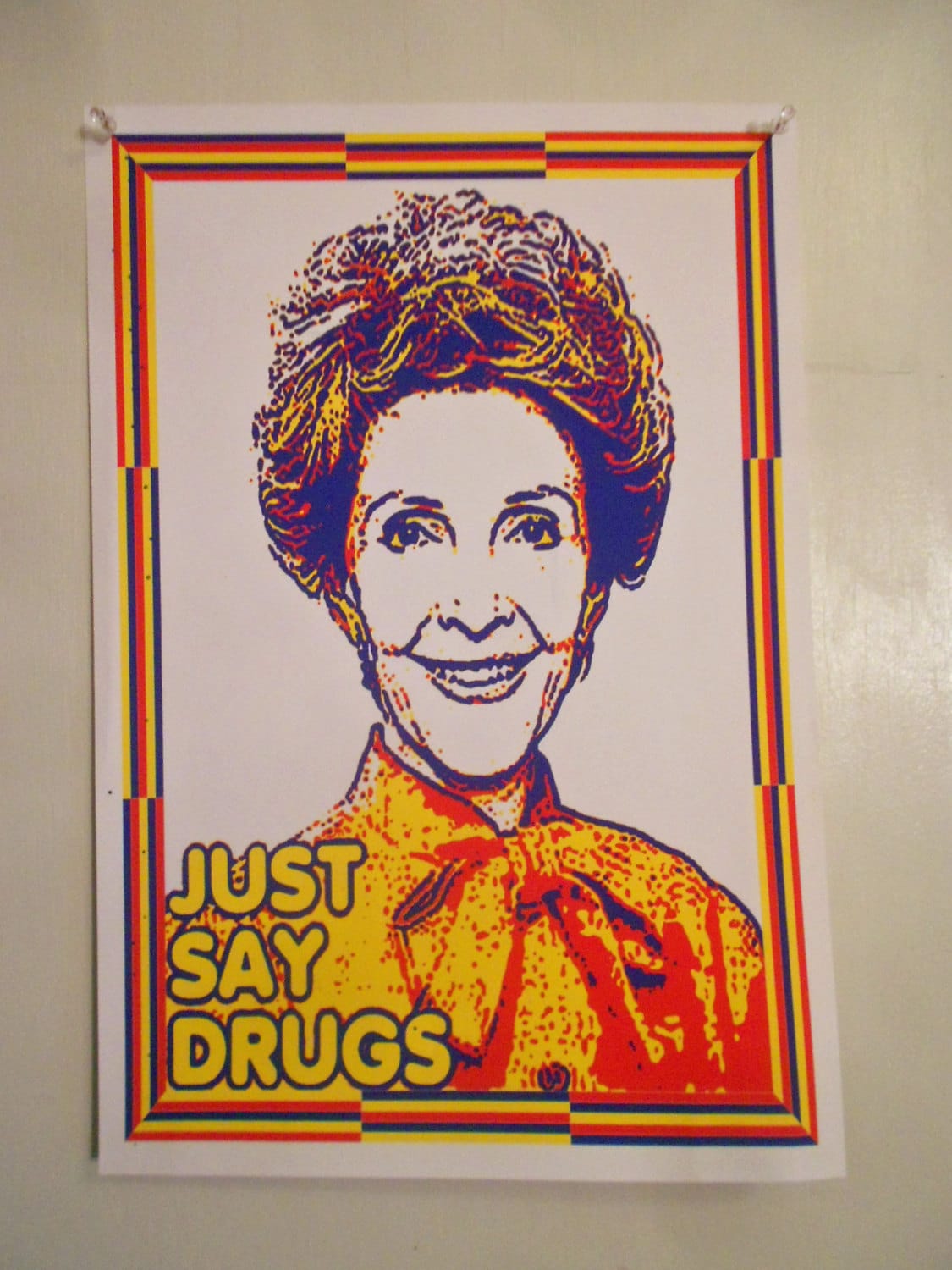"Transcending Temptation"
Its been a few
new years
resolutions
since the last time
I've made that same
mistake
The one where
accusations fly
over going out
to perform at
an Open Mic
The one where
every phone call
or text message
paints me in
a guilty light
affirming her suspicion
Recently
I've been devoted
to keeping it kosher
since the last time
I succumbed
to the temptation of
a Jewish mistress
I considered
the advice of
my fellow Christian
by turning
the other cheek
faithfully speaking
Keeping
my zipper up
to the sky
riding along
with my high
and inhibitions
Just saying no
like Nancy Reagan
is a task of simplicity
when nobody wants
to be involved with
my chemical imbalance
or lack of many inches
Every man
has his weakness
or in my case
extended list
I'd prefer
to have surpassed
all this running around
preliminary hearings
and pleading the fifth
But nothing
is guaranteed
when the
horrendous content
of my poetry
contradicts my
physical appearance



When Nancy Reagan visited Daytop (Drug Addicts Yield to Probation) in New York, one of the oldest drug-treatment programs in the US, she was impressed by its therapeutic model of using peer pressure as a way of combating substance abuse. When her husband Ronald Reagan became president she decided to be a crusader for the cause. Visting Longfellow Elementary School in Oakland, California, she was asked how to resist a friend's offer of drugs, Nancy replied "Just say no." This was the beginning of a nationwide promotion designed by Robert Cox and David Cantor, advertising executives at the New York office of Needham, Harper & Steers/USA. The first lady traveled more than 250,00 mi (400,00 km) in the US and abroad, visiting drug rehabilitation centers, appearing on talk shows, and becoming the 1st first lady to address the United Nations. The approach was derided as simplistic by many critics who claimed that it actually prevented young people from getting accurate information. As part of the effort the Los Angeles Unified School District and police chief Daryl Gates founded the Drug Abuse Resistance Education (D.A.R.E.) program in 1983, but 2 studies reported in "Scientific American" actually suggested that enrollees in DARE-like programs were actually more likely to use dangerous substances than those who did not.
ReplyDelete"Pleading the Fifth" is the invoking of the part of the 5th amendment to the US Constitution which asserted that "No person ... shall be compelled in any criminal case to be a witness against himself." It was first invoked more than a century after its adoption by Arnold Rothstein, the man who transformed organized crime in the US into an enterprise that resembled a corporation. He was resposible for the "1919 Black Sox scandal" in which the heavily-favored Chicago White Sox deliberately lost the World Series to the Cincinnati Reds in order to enrich corrupt bettors, was the 1st to realize the business potential of Prohibition, and was the nation's largest bootleggers for awhile. He also mediated between the New York gangsters like Meyer Lansky, Jack "Legs" Diamond, Charles "Lucky" Luciano, and Dutch Schultz, charging them a hefty fee for his services and forcing the city's Democratic "machine," run by the infamous Tammany Hall, to collude with him in controlling the gangs. He was murdered in 1928 for refusing to pay a $320,00 (= $4.5 million) gambling debt. After his death Lansky, Bugsy Siegel, and others took over his criminal enterprises, Tammany Hall's political power collapsed, and Fiorello La Guardia became the city's reformist mayor. Arnold was the brother of a rabbi and the son of "Abe the Just," a successful Manhattan businessman.
Kosher foods are those that conform to the regulations of kashrut (dietary law), primarily derived from Leviticus and Deuteronomy. Food that may be consumed according to halakha (law) is termed kosher (in English, from the Ashkenazi pronunciation of the Hebrew term kashér (meaning "fit"). Food that is not in accordance with law is called treif in Yiddish, derived from the Hebrew trāfáh (torn). More generally, “to keep it kosher’ means to be faithfully Jewish.
ReplyDelete“Turning the other cheek” refers to responding to injury without revenge, variously interpreted as advocating nonresistance, pacifism, or nonviolence on the part of the victim. In “The Gospel of Matthew” (5:38-42) Jesus preached, “You have heard that it was said, ‘An eye for an eye and a tooth for a tooth.’ But I say to you, Do not resist the one who is evil. But if anyone slaps you on the right cheek, turn to him the other also. And if anyone would sue you and take your tunic,[a] let him have your cloak as well. And if anyone forces you to go one mile, go with him two miles. Give to the one who begs from you, and do not refuse the one who would borrow from you.” In “The Gospel of Luke” (6:27-31) he instructed, “But I say to you who hear, Love your enemies, do good to those who hate you, bless those who curse you, pray for those who abuse you. To one who strikes you on the cheek, offer the other also, and from one who takes away your cloak do not withhold your tunic[a] either. Give to everyone who begs from you, and from one who takes away your goods do not demand them back. And as you wish that others would do to you, do so to them.”